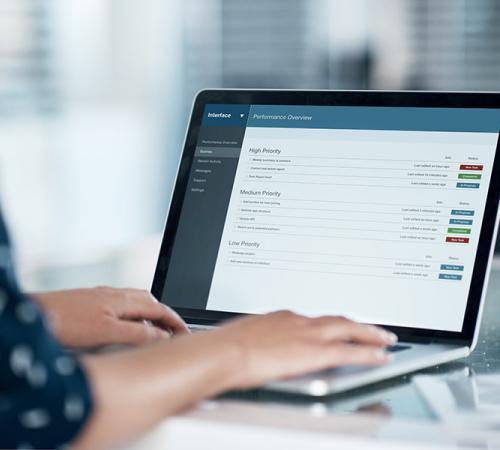

Every contractor has their own reasons for enjoying the contracting lifestyle, but typically these include usually being paid more than permanent staff working on the same projects, getting to choose when and where to work, when to take holidays, and getting to be their own boss.
But there are also downsides to contracting, such as having less security; no guaranteed work and no sick pay or holiday pay. Becoming a contractor is not a decision to make lightly, but if you have weighed up the advantages and disadvantages and have decided it is for you, then there are several steps you will need to take before you can begin contracting.
Do your research
First thing’s first, you need to do some thorough research into your market. You need to make sure that there is demand for your skillset as a contractor, and take a look at the rates currently being offered. You can do this by checking job sites or talking to contract recruitment agencies in your industry to see what kind of contracts are available and whether you would be suitable for them. You will also need to find out where the demand for your skill set is, which means you may need to be flexible on the location of your contracts.
Set up your contractor company
If you feel there are sufficient opportunities for you to contract, the next thing you will need to do is decide how you want to run your business. In essence you have the choice between setting up a limited company or operating under an umbrella company, and there are pros and cons to each. Setting up a limited company where you become director and shareholder, is the most tax-efficient way of contracting, and allows you to have complete control over your financial affairs. There are however legal obligations and paperwork requirements in running a limited company, which is why some contractors prefer to use umbrella companies, who will take responsibility for invoicing, paperwork, collection of money etc on their behalf. However with an umbrella company you effectively become an employee again and are therefore eligible for PAYE and national insurance contributions.
Find a contract
The most popular method of finding a contract is online searching. For many the first stop will be search engines or online job boards where you can use their search facilities to find the work you are looking for and apply for contracts from a variety of different clients and agencies. It is also worth checking job listings on the end clients’ websites and keeping your ear to the ground on forums, newsletters and social media sites such as LinkedIn. LinkedIn is also a handy tool for building your network and keeping in touch, as both online and offline networking are valuable ways of finding new contracts.
Be aware of IR35
IR35 affects all contractors who do not meet HMRC’s definition of ‘self-employment’ and was designed to stop contractors working as ‘disguised employees’, by taxing them at a rate similar to employment. Contractors benefit from tax advantages, therefore if you are working as a contractor but with the same responsibilities, control and benefits as a permanent employee – you are not entitled to a different tax regime and should declare yourself ‘inside’ IR35. If you declare that you are working outside IR35 but HMRC find that you are actually within it, you could face a huge tax bill and penalty. This is why you must make sure that both your contract and working practices reflect that you are working as an independent contractor and therefore ‘outside’ IR35. You should also be aware that from April 2017 contractors working in the public sector will no longer be responsible for deciding their own IR35 status, and the responsibility to pay tax if the intermediaries legislation applies will move from the worker to the staffing agency or third-party who pays them.
If you are considering becoming a contractor or own a business that hires contractors, IR35 is something that you should be familiar with: What is IR35 and how does it apply to me?
Get protection with contractors insurance
As a contractor you will be providing professional advice and services which your clients rely on, therefore if something goes wrong and it causes the client financial loss they have a legal right to claim against you. No matter how skilled you are or how careful you are on a contract, there is always potential for you to make a mistake.
Clients may also allege contractors have made mistakes or breached their contract when they have not. Professional indemnity insurance can protect contractors against such claims, and may cover legal costs due to negligence, or compensation needed to pay to correct a mistake. Not only could professional indemnity insurance protect you and give you peace of mind, it also provides reassurance to your clients.
In many contracts, professional indemnity cover is now often specified as a requirement. That’s why Hiscox offer a PI policy specially tailored to contractors, so that alongside other important covers, contractors are covered for the risks most common within this profession. Find out more about the Contractors Business Insurance provided by Hiscox today.
For more on getting started as a contractor visit ContractorUK (external link) or find out more about IR35 on ContractorUK (external link)
Disclaimer:
At Hiscox, we want to help your small business thrive. Our blog has many articles you may find relevant and useful as your business grows. But these articles aren’t professional advice. So, to find out more on a subject we cover here, please seek professional assistance.






